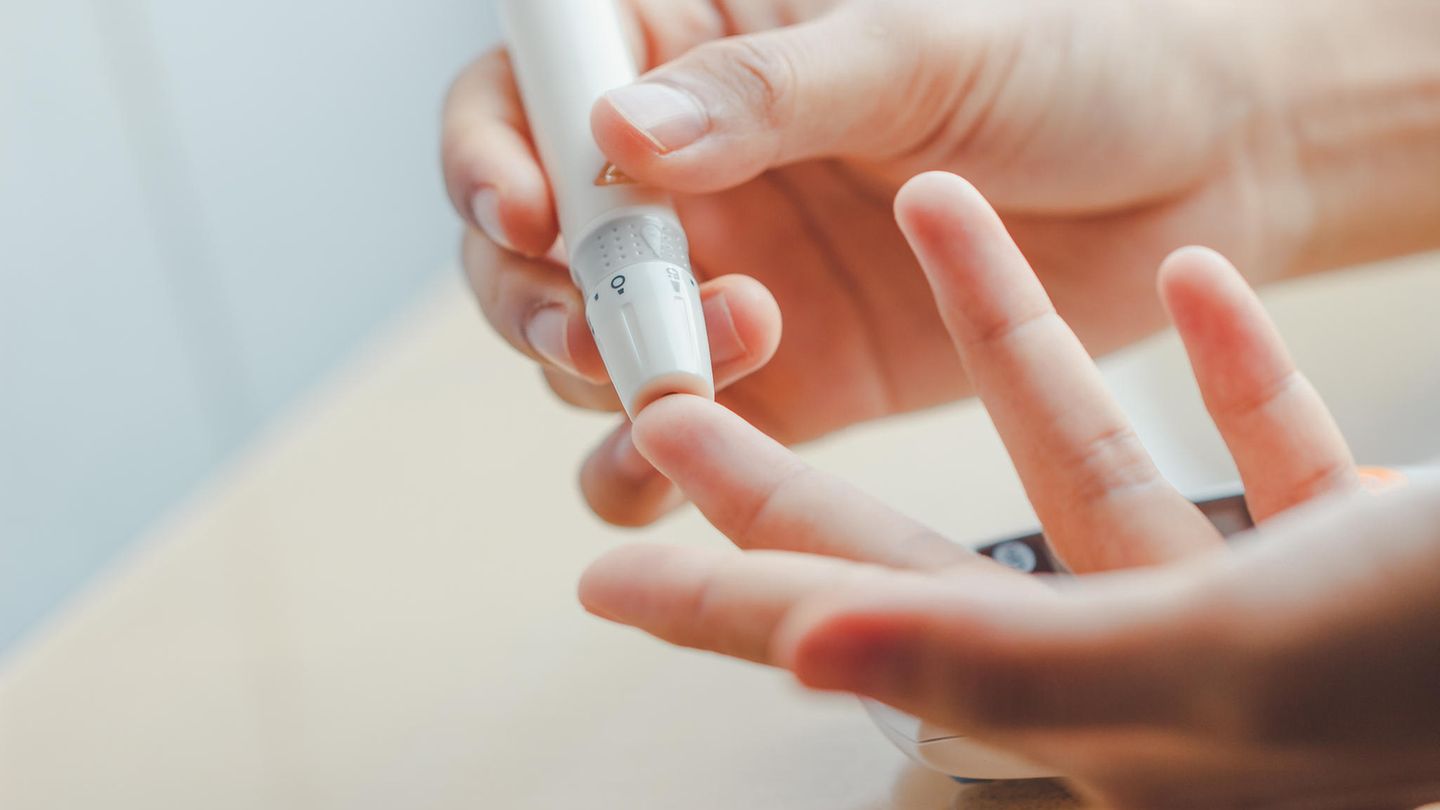The risk of diabetes seems to increase with a Covid-19 infection, as two studies show. What are the warning signs of high blood sugar levels.
It has long been suspected that Sars-CoV-2 could increase the risk of diabetes. Since the beginning of the pandemic, there have been reports of patients who have developed diabetes after surviving a Covid-19 infection. Two recent studies also suggest that people who have had Sars-CoV-2 may be at increased risk of developing diabetes.
Researchers in the US analyzed the disease data of more than 180,000 US veterans who had Covid-19 and published their results in the journal The Lancet Diabetes & Endocrinology. The result: the probability of developing diabetes compared to the control group increases by 40 percent over a period of up to one year for those infected with corona.
As control groups, the researchers used data from two groups of four million people who did not have Sars-CoV-2 and were treated in the veterans’ health system. There were 13 additional diabetes diagnoses for every 1,000 people in the group of people suffering from corona. Almost all cases found are type 2 diabetes.
Even people without risk factors get sick
According to the study results, the probability of developing diabetes increases with the increasing severity of Sars-CoV-2. Even people with mild infections and no prior risk factors for diabetes had an increased likelihood of developing diabetes, Ziyad Al-Aly, senior researcher for the Veterans Affairs (VA) Health System in St. Louis, Missouri, and co-author of the study, told ” Nature”.
But the results of the study are limited. The US veterans in the study were mostly older, white males. Many of them have high blood pressure and are overweight, putting them at high risk of developing diabetes, Gideon Meyerowitz-Katz, an epidemiologist at the University of Wollongong in Australia, told Nature.
Another study from Germany, which was published in the journal “Diabetologia”, deals with the connection between Covid-19 and diabetes. The researchers investigated whether type 2 diabetes can occur as a consequence of Covid-19. Their result: Even a mild Covid 19 infection could increase the risk of type 2 diabetes.
A team led by Wolfgang Rathmann from the German Diabetes Center Düsseldorf used electronic patient files from the “Disease Analyzer”, a sample of family doctor patients, for the analysis. From March 2020 to January 2021, 8.8 million people had visited a general practitioner. 35,865 of these patients had Covid-19. The researchers compared the data with an equally large group of patients who were being treated for a respiratory infection.
Higher risk of diabetes even with mild corona courses
None of the patients had previously suffered from diabetes. According to the study, the people examined were also comparable in terms of their risk factors and previous illnesses. Of those infected with corona, 15.8 out of 1000 people developed diabetes. In the control group with respiratory infections, only 12.3 out of 1000 people. According to the study, the risk of diabetes after a corona infection is around 28 percent higher than after a cold or flu.
Since there is no data on the exact body mass index of the patients examined and no precise information on Covid-19 diagnoses outside of the general practitioner’s practice, the accuracy of the data could be limited. Wolfgang Rathmann says that the patients were observed only three months after the corona infection. Further studies are needed to be able to make statements about whether type 2 diabetes becomes chronic after a mild corona infection or whether it can be reversed.
Warning sign of possible diabetes disease
Previous studies have looked at the connection between Covid-19 and diabetes. One finding from this is that Sars-CoV-2 attacks so-called beta cells in the pancreas and, in the worst case, could cause type 1 diabetes. The inflammatory response caused in the body by Covid-19 appears to decrease insulin sensitivity, which increases the risk of type 2 diabetes. The risk could also increase due to the sedentary lifestyle in lockdown, according to the report on the study from Düsseldorf.
The research team recommends that those who have recovered from Covid-19 should look out for warning signs of diabetes. Anyone who suspects diabetes should seek medical advice. Type 2 diabetes often does not cause any symptoms for a long time and thus often remains undetected. Nevertheless, there are some signs that can indicate an elevated blood sugar level:
- frequent thirst
- frequent urination
- exhaustion/fatigue
- tendency to infections
- poorly healing wounds
Sources:, , , ,
Source: Stern




